Green Digital City: President Mahama announces potential 20-year development project to decongest Accra
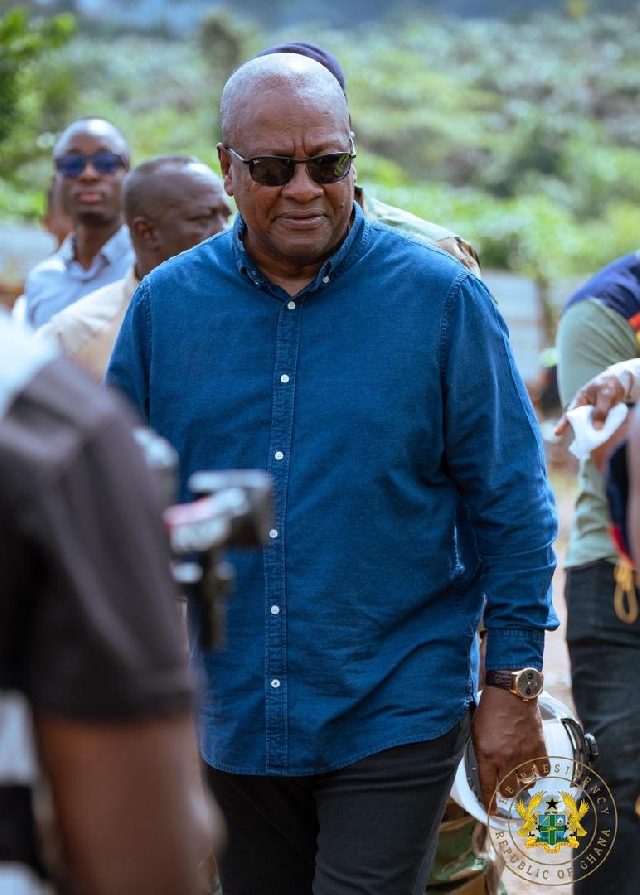 President John Mahama
President John Mahama
President John Dramani Mahama has announced that government will soon begin feasibility studies for a new Green Digital City, a 20-year development project designed to help decongest Accra and drive sustainable urban growth.
Speaking at the sod-cutting ceremony for the 200-megawatt Solar for Industries (SFI) Project at Agortor near Dawa, the President said the proposed city would feature modern infrastructure, smart systems, and dedicated zones for industrial, residential, commercial, and financial activities.
“Accra will remain the capital, but we’ll move some government agencies and offices to the new city to ease the growing congestion,” President Mahama explained. “This city will attract investment and tourism, it will be smart, well-planned, and free of kiosks and roadside trading. Every activity will have its proper place.”
He said the Green Digital City would span areas including the Dawa Industrial Park, Saglemi Housing Estates, and the Bundase Military Range, extending into parts of the Eastern and Volta regions. The feasibility study and design work are expected to begin by the end of this year, with budgetary support from the Ministry of Finance.
Turning attention to the day’s main event, President Mahama said the Solar for Industries Project, developed by Park Solar in partnership with Quam Investments and the International Finance Corporation (IFC), represents a major step toward Ghana’s renewable energy goals.
“Today’s ceremony is not just about cutting sod,” he said. “It’s about turning a page in how we power our growth, build our industries, and secure our energy future.”
The project will supply clean, stable, and affordable electricity to Ghana’s manufacturing and export zones—key to the government’s 24-hour economy and industrial recovery programme.
Under the RESET Agenda, he noted, government aims to make energy the engine of inclusive industrialisation—ensuring that every factory, cold storage facility, and digital hub can operate efficiently, day and night, without high energy costs or power interruptions.
The President said Ghana’s National Renewable Energy Master Plan targets at least 15 percent renewable energy in the national mix by 2030, adding that projects like SFI are essential to meeting that goal.
He also highlighted the global importance of clean energy, noting that new international trade rules—such as the European Union’s Carbon Border Adjustment Mechanism—would soon penalise exports from countries with high carbon footprints.
“Investing in solar-powered industrial parks protects Ghanaian jobs, preserves our market access, and ensures our industries remain competitive under the AfCFTA and other trade agreements,” he said.
President Mahama praised the project’s partners—Park Solar, Quam Investments, and the IFC—for their collaboration, and made a light-hearted remark acknowledging IFC Country Representative Kyle Kelhofer, promising him an honorary Ghanaian passport for his contributions to Ghana’s economic development.
He reaffirmed his government’s intention to enhance public-private collaboration in energy and water distribution, stressing that private sector efficiency could improve bill collection, service reliability, and long-term sustainability.
“There’s something to be said for injecting private sector efficiency into public utilities,” he said. “Our goal is to bring efficiency and accountability to the last mile of service delivery.”
President Mahama outlined his administration’s long-term energy vision, anchored on three pillars—sovereignty, sustainability, and security of supply. He said the future lies in generating more local energy from the sun, wind, and water Ghana is naturally endowed with.
The President also linked the solar initiative to broader environmental programmes, including Blue Water Guards, the Tree for Life Reforestation Programme, and the Clean Ghana Campaign, all aimed at restoring Ghana’s natural environment.
“Every megawatt of clean energy we generate is a promise to our children that we’ll leave them a healthier planet than we inherited,” he said. “Ghana does not need to choose between economic growth and environmental protection—we can, and must, achieve both.”
He concluded by describing the Solar for Industries Project as more than a power plant—it is a symbol of Ghana’s clean industrial revolution.
“As we cut the sod today, we affirm our confidence in Ghana’s ability to produce, process, and export competitively,” President Mahama said. “Every light that shines from this solar park will illuminate not only factories and homes but the aspirations of millions of Ghanaians.”
Source: classfmonline.com/Pearl Ollennu
Trending News

'Commercial farming is Ghana’s future': Ayariga bemoans multibillion-dollar drain, warns against dependence on imports
17:44
OSP rejects Martin Kpebu’s claims of “Self-Investigation,” describes allegations as misleading
07:14
Kwabena Agyepong's campaign manager endorses Bawumia ahead of NPP presidential primary
07:38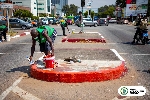
Accra Mayor preps city for Christmas, leads sanitation and beautification drive
19:41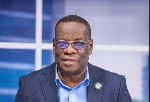
WAEC exec outlines skills gap causing decline in math performance
23:39
Nungua Stool defends government board appointee Ben Danso amid land dispute
17:38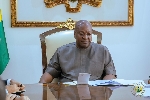
Ofankor-Nsawam-Kumasi road: President Mahama pleased with 'rapid progress' after last visit 90 days ago, anticipates April 2026 finish
01:17
Minority demands prosecution over alleged GHS10m overspending at Transport Ministry
08:33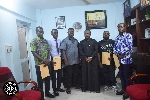
Ablekuma West MP secures jobs for constituents through targeted lobbying efforts
09:36
Ghana AIDS Commission reaffirms commitment to ending HIV epidemic by 2030
10:54



